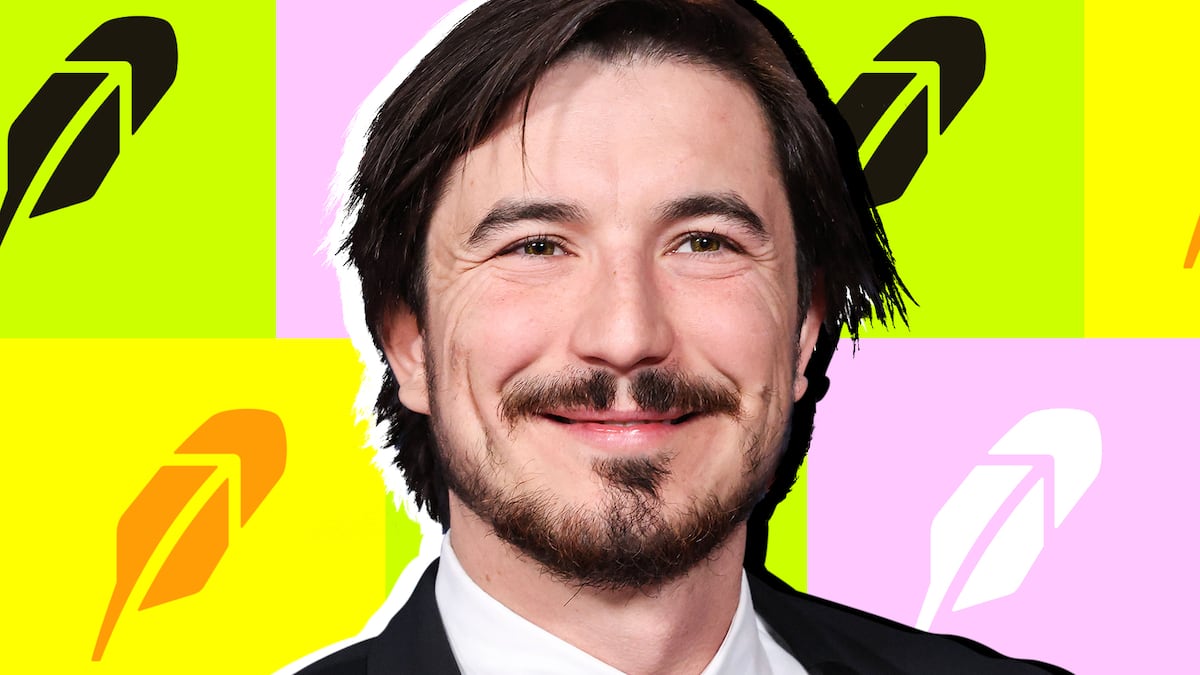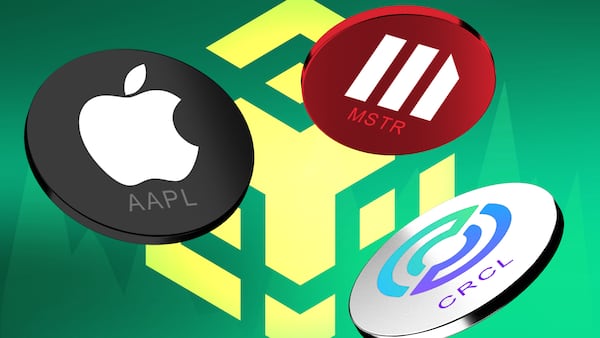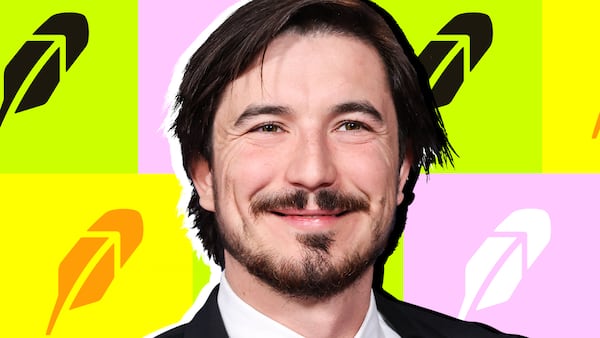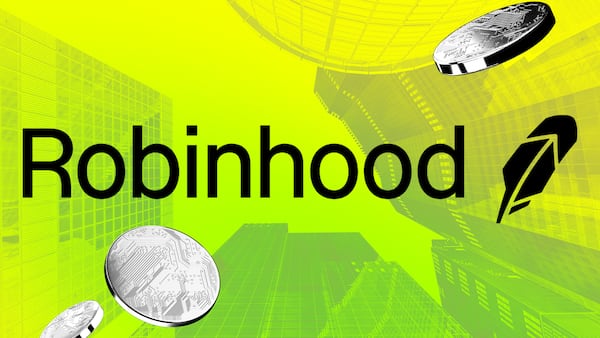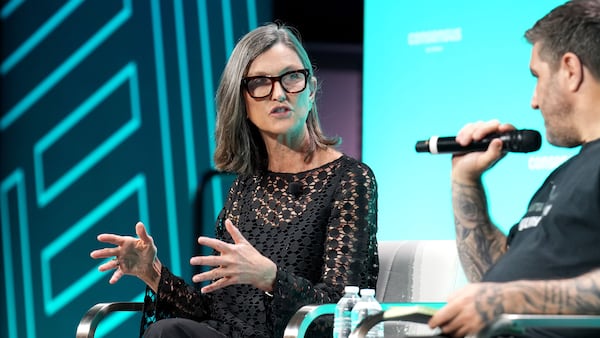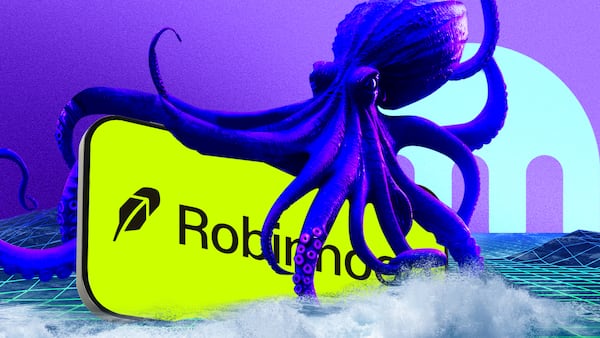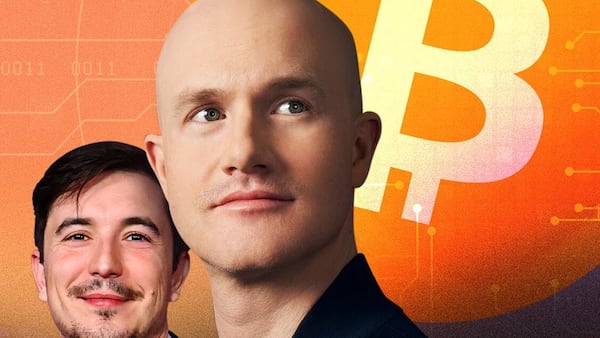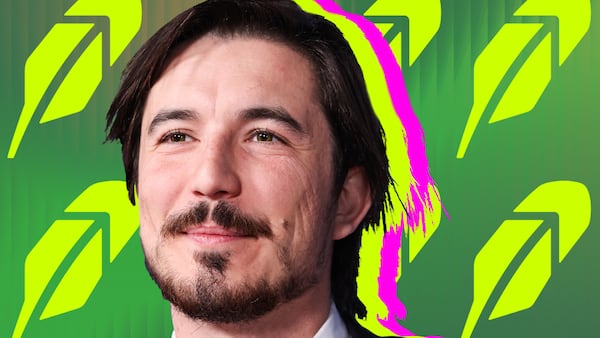- Tokenising the entire financial market is inevitable, said Tenev.
- Real world assets are just a 0.02% of the global equities market.
- Market structure legislation will be a key unlock in the US.
Bringing stocks, bonds, and just about every other financial asset onchain is inevitable.
At least according to Robinhood CEO and co-founder Vlad Tenev.
“Tokenisation is like a freight train,” Tenev told a captive audience at this year’s Token2049 crypto confab in Singapore. “It’s going to eat the entire financial system.”
During a fireside panel in the Marina Bay Sands convention centre, the 38-year-old entrepreneur unpacked how the $127 billion stock trading app is positioning itself to tap the burgeoning tokenisation niche.
In June, Tenev announced the launch of over 200 tokenised stocks on Arbitrum, a Ethereum layer 2 network, for its users in Europe. The launch also included tokenised equity in private companies, such as Tesla and OpenAI.
But when will tokenised stocks become available in the US and then globally?
“Most major markets will have some framework in the next five years,” Tenev said. “I think a hundred per cent? That might take a decade or more.”
$115 trillion market
For years, turning traditional financial assets into cryptocurrencies has been pitched as a key upgrade to financial markets. The technology ostensibly eliminates intermediaries and streamlines back offices required for trading equities and other assets.
Despite these perceived advantages, it has yet to take hold in a meaningful way.
The entire tokenisation market is worth $32 billion, according to rwa.xyz. Meanwhile, the global public stock market is valued at more than $115 trillion as of 2023, according to the World Economic Forum.
Still, companies — on Wall Street and in Silicon Valley — are working to close that gap.
BlackRock, Franklin Templeton, Apollo, and other stalwart asset managers are actively tapping blockchain technologies to tokenise various fund products.
Elsewhere, crypto firms, including Coinbase, Crypto.com, and Kraken are moving to offer tokenised stock trading, too.
Rules of the road
The enthusiasm comes amid key market structure legislation winding its way through the halls of the US Congress.
Draft bills outline which financial agency will regulate newer asset classes, such as tokenised stocks and cryptocurrencies alike.
The House Clarity Act passed in July, while the Senate version is still being debated. Ultimately, lawmakers will merge the two versions before executing a vote as early as the end of the year.
Thanks to the European Union’s comprehensive crypto rulebook, known as Markets in Crypto-Assets, the continent has a slight lead in terms of crypto adoption — for now.
“Unfortunately, but realistically, the US will probably be somewhat behind,” Tenev said. “The US will probably be the last economy to fully tokenise. But it’s inevitable. “
Liam Kelly is DL News Berlin-based DeFi Correspondent. Got a tip? Email at liam@dlnews.com.


